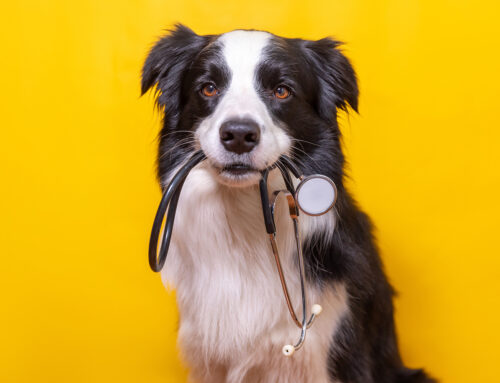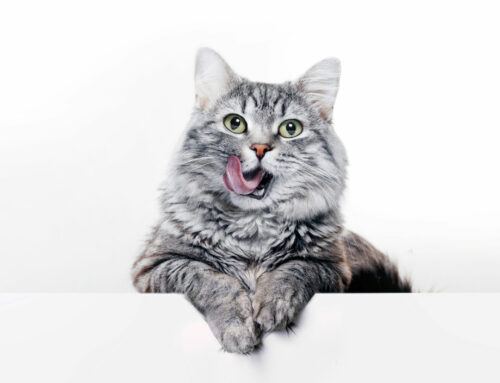Dogs have 2 anal glands which are located just inside their rectum. They are very small and you cannot see them from the outside. These glands contain a very smelly fluid which is supposed to be released whenever they produce faeces. The smell helps our animals to mark their territory, but the fluid can also help to lubricate the opening of the anus, helping faeces to leave the body more freely.
How can I tell if my dog has problems with their anal glands?
Dogs that are affected by anal gland issues are commonly seen ‘scooting’. This is when the dog moves around scratching their bottom on the floor.
Many dogs suffering from anal gland diseases or blockages may be vocal when going to the toilet, they may lick their bottom a lot because their rectum becomes very uncomfortable. Affected dogs may squat to go to the toilet but not produce any material or they may squeal when they do go to the toilet.
Many owners are able to smell the glands when they need emptying. It smells like foul fish – it is not hard to miss!
Issues associated with anal glands
Unfortunately, some dogs do not fully release their anal glands when they go to the toilet. This can be because they are blocked, as the material within the gland changes consistency and becomes more solid. Simple blockages like this often follow on from an episode of diarrhoea which has prevented the glands from being “squeezed” properly.
Infections are common in the anal glands. Infections will be treated differently depending on what the exact underlying cause is, but if you suspect your dog has an anal gland infection, you should seek veterinary attention. If you let these infections build up, they could result in abscesses and cause systemic symptoms such as a fever, depression and changes in appetite.
If any issues are recurrent, you should mention this to the vet – some of the causes of anal gland problems are more serious and chronic, such as malignant tumours or metastatic tumours, although these are very rare.
How can I treat anal gland issues?
Get in touch with us – it may be that your dog’s anal gland need expressing to empty them. It is very common for dogs who regularly get impacted anal glands to come to the vet practice in order to get them emptied. This is a very quick procedure performed by the veterinary surgeon or nurse. No sedation or medication is required. This is a very common and simple procedure.
Anal gland issues are often very manageable. If your dog is in a lot of pain, the vet surgeon may suggest releasing the anal glands under a general anaesthetic in order to make the procedure pain free and reduce the amount of stress the dog associates with the procedure.
In the case of infection, our vets may prescribe painkillers and antibiotics to treat it.
As mentioned above, you can alter the diet. If you speak to professionals within the practice, we will be able to advise on dietary changes that would suit your lifestyle and pet, aiming to reduce the chance of gastrointestinal disturbances.
Depending on the pain experienced, which we can judge by using our pain scoring method, we may give some pain relief.
What can I do to prevent anal gland problems from developing?
You could try to alter your dog’s diet. Increasing the amount of fibre in the diet will increase the bulk of the faeces, so the faeces press on the rectal wall more making it more likely that the glands will be emptied. If you try to do a diet change, ensure you do this gradually as other gastrointestinal issues may arise from an abruptly changed diet.
Obesity affects the muscles in the dog’s gluteal area. Weak gluteal muscles affect how efficiently the muscles contract. Weak contractions mean the glands will not release the material very well.
Some dogs are born with small gland openings. This means it is much harder to push material out of them. Dogs that have small openings may need their glands manually releasing every 4-6 weeks. It is best to stay on top of this and get your appointments booked in advance.
If your dog has diarrhoea, the thin consistency of the faeces is not able to apply pressure to the glands meaning they will not release.
Together, we can manage these conditions. We are here to provide the care your pets deserve!



